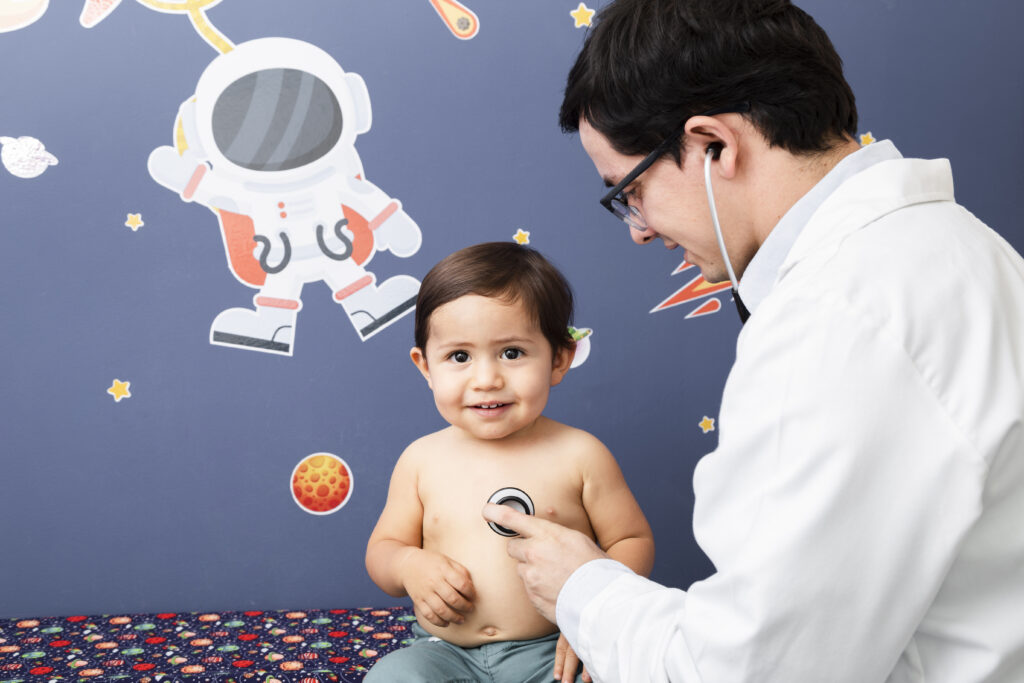
Congratulations on welcoming your precious newborn into the world! This exciting and overwhelming time is filled with new experiences and questions, especially for new moms. One of the most important aspects of caring for your little one is ensuring their health and well-being through regular checkups. This article will guide you through your baby’s first health checkup, providing newborn care tips, information about what to expect, and a suggested schedule for future visits.
The First Week with Your Newborn
The first week with your newborn is a whirlwind of emotions, adjustments, and getting to know each other. Your focus will likely be on establishing breastfeeding or bottle feeding, learning newborn cues, and getting enough sleep (which can feel impossible!). However, amidst the chaos, there’s a crucial doctor’s visit scheduled – your baby’s first checkup.
Why is the First Checkup Important?
This initial checkup, usually scheduled within 24-48 hours of birth, is vital for assessing your baby’s overall health and development. The doctor will perform a physical examination, check for any birth defects or concerns, and ensure your baby is thriving. It’s also a perfect opportunity for you, as a new mom, to ask questions and address any anxieties you might have about newborn care.

What to Expect at the Doctor’s Visit
Here’s a breakdown of what you can expect during your baby’s first checkup:
- Weight and Height Measurement: The doctor will weigh and measure your baby to track their growth and development.
- Physical Examination: The doctor will thoroughly examine your baby, checking their head, eyes, ears, nose, throat, heart, lungs, abdomen, genitals, and hips. They’ll also assess your baby’s reflexes and muscle tone.
- Assessment of Newborn Tests: Newborn babies undergo several tests shortly after birth to screen for potential health conditions. The doctor will review the results of these tests, such as hearing and vision screenings, and discuss any follow-up needed.
- Umbilical Cord Care: The doctor will check the umbilical cord stump (the remaining portion of the umbilical cord) and advise you on proper care practices.
- Feeding Discussion: The doctor will discuss how your baby is feeding, whether breastfeeding or bottle-feeding and offer guidance and support.
- Immunizations: Depending on your baby’s health and your doctor’s recommendations, they might administer the first dose of the Hepatitis B vaccine during this visit.
- Discussion of Newborn Care: This is your chance to ask questions about everything from newborn bathing and diapering to sleep routines and crying cues. Don’t hesitate to bring a list of your concerns, big or small.
Newborn Care Tips for New Moms
Here are some helpful newborn care tips to keep in mind:
- Skin-to-Skin Contact: Hold your baby skin-to-skin as often as possible. This promotes bonding, regulates your baby’s body temperature, and aids in breastfeeding.
- Umbilical Cord Care: Keep the umbilical cord stump clean and dry. Avoid submerging it in water until it falls off naturally. Follow your doctor’s specific instructions for cleaning the area.
- Diapering: Change diapers frequently to prevent diaper rash. Wipe from front to back to avoid infections.
- Bathing: Newborn babies don’t require daily baths. Sponge baths are sufficient until the umbilical cord falls off. Use warm water and a gentle, fragrance-free baby wash.
- Feeding: Breastfeed or bottle-feed your baby on demand. Pay attention to hunger cues like rooting, sucking noises, and hand-to-mouth movements.
- Burping: Burp your baby frequently during and after feeding to prevent gas discomfort.
- Sleep: Newborns sleep a lot, but it won’t be in long stretches. Always place your baby on their back to sleep to reduce the risk of Sudden Infant Death Syndrome (SIDS).
- Crying Cues: Learn to recognize your baby’s cries to understand their needs. They might cry due to hunger, tiredness, discomfort, or simply wanting to be held.
Taking Care of Yourself, the New Mom
Remember, taking care of yourself is crucial for taking care of your newborn. Here are some self-care tips for new moms:
- Get Enough Sleep: This might feel like a distant dream, but prioritize sleep whenever your baby allows. Ask your partner or a family member for help with nighttime feedings.
- Eat Healthy: Maintain a healthy diet to nourish yourself and your baby.
- Stay Hydrated: Drink plenty of fluids to avoid dehydration, especially if you’re breastfeeding.
- Ask for Help: If needed Don’t hesitate to ask for help and support.
Newborn Checkup Schedule: A Guide for Future Visits
While the first checkup is crucial, it’s just the beginning of your baby’s well-being journey. Here’s a suggested schedule for future well-child visits to ensure your baby’s growth and development are on track:
- 2-4 Weeks Old: This visit focuses on weight gain, growth monitoring, assessing feeding patterns, and addressing any parental concerns.
- 1-2 Months Old: The doctor will again check your baby’s weight and growth, perform a developmental assessment, and administer the first dose of the rotavirus vaccine (protects against rotavirus diarrhea) and DTaP vaccine (protects against diphtheria, tetanus, and pertussis).
- 4 Months Old: Expect another weight and growth check, a developmental assessment, and potential vaccinations for DTaP, polio, Haemophilus influenzae type b (Hib) (protects against meningitis and other infections), and pneumococcal conjugate (PCV) (protects against pneumonia and other infections).
- 6 Months Old: This visit typically includes weight and growth monitoring, a developmental assessment, and potential vaccinations for DTaP, polio, Hib, PCV, and hepatitis B.
- 9 Months Old: The doctor will check your baby’s weight and growth, assess their development, and might administer vaccinations for DTaP, Hib, and influenza (flu shot).
- 12 Months Old: This visit involves weight and growth monitoring, a comprehensive developmental assessment, and potential vaccinations for DTaP, Hib, measles, mumps, rubella (MMR), varicella (chickenpox), and PCV.
- 15 Months Old: Expect a weight and growth check, a developmental assessment, and potential vaccinations for MMR and hepatitis A.
- 18 Months Old: This visit typically includes weight and growth monitoring, a developmental assessment, and potential vaccinations for DTaP, polio, Hib, and influenza.
Remember, this is a suggested schedule, and your doctor might adjust it based on your baby’s specific needs. Always attend all scheduled appointments and discuss any concerns you have with your doctor.
Additional Resources and Products for New Moms
Newborn care can feel overwhelming, but there are many resources and products available to help you navigate this incredible journey. Here are a few suggestions:
- The American Academy of Pediatrics (AAP): The AAP website offers a wealth of information on newborn care, development, and common concerns https://www.aap.org/.
- The Centers for Disease Control and Prevention (CDC): The CDC provides reliable information on newborn vaccinations and immunization schedules https://www.cdc.gov/vaccines/index.html.
- Newborn Care Books: Several books offer practical guidance on newborn care, such as “What to Expect the First Year” by Heidi Murkoff and Sharon Mazel.
- Support Groups: Connecting with other new moms through online forums or local support groups can be a great source of information and emotional support.
- Baby Products: Stock up on essential newborn care products like diapers, wipes, a baby bathtub, gentle baby wash, soft blankets, comfortable clothes, and a safe and comfortable sleep space.
Conclusion
The arrival of your newborn is a life-changing experience filled with immense joy and a multitude of questions. By prioritizing your baby’s well-being through regular checkups, learning about newborn care, and taking care of yourself, you can navigate this exciting new chapter with confidence. Remember, there’s no such thing as a perfect parent. Trust your instincts, seek help when needed, and most importantly, cherish every precious moment with your little one.
So, what questions do you have about your baby’s health or newborn care? Don’t hesitate to discuss them with your doctor at your next appointment.

